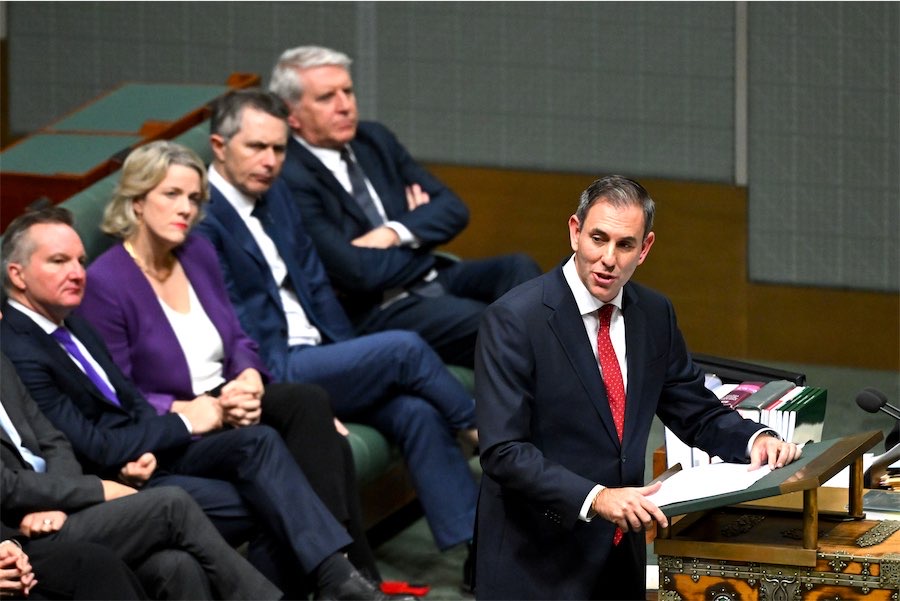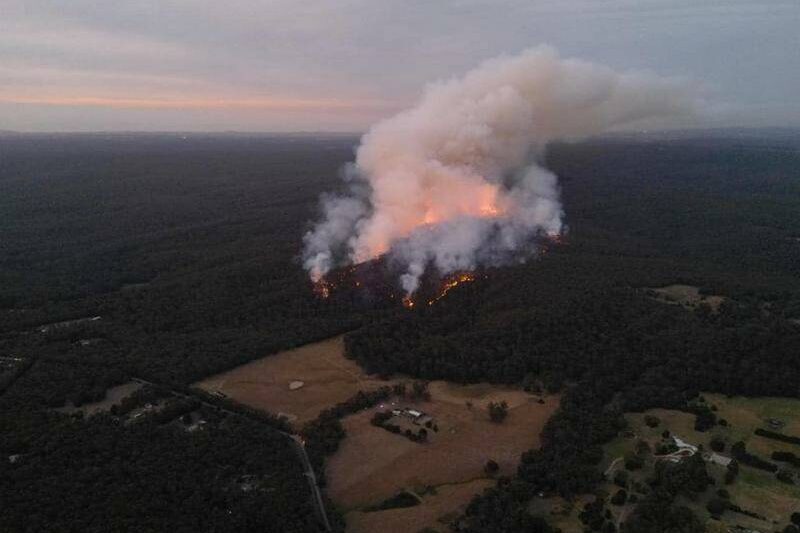
By Andrew Brown in Canberra
Energy rebates for every household, a cap on the price of prescriptions and further relief for renters have led cost-of-living relief measures in the federal budget.
Treasurer Jim Chalmers’ third budget also contains tax cuts of $36 a week on average for all taxpayers, while eligibility for JobSeeker payments will be extended.
In announcing a second-straight budget surplus of $9.3 billion, the treasurer warned that while “fraught and fragile” economic conditions were ahead, Australia was prepared to meet the challenges head on.
“In our future, we must strive for more than muddling through or making do,” Dr Chalmers told federal parliament on Tuesday night.
“This budget shows we are realistic about the pressures people face now, and optimistic about the future.”
Power bill relief will see every household get a $300 energy rebate from July, while eligible small businesses will get a $325 rebate.
As well, Commonwealth Rent Assistance will increase by 10 per cent for more than one million households, with the government spending $1.9 billion over the next five years.
On average, those on rent assistance will receive an extra $19 per fortnight.
The rent assistance rise is the first time there have been consecutive increases in the payment in 30 years.
It’s expected the combined measures of energy relief and rent assistance will shave half a percentage point off inflation, with consumer price growth set to fall into the Reserve Bank’s target band of two to three per cent by the end of calendar 2024.
The cost of medicines will also be frozen, with a cap of $31.60 set for prescriptions included in the Pharmaceutical Benefits Scheme.
Cost caps of $7.70 will also be in place for five years for pensioners and concession holders.
Further cost-of-living measures include the well-foreshadowed stage three tax cuts, with all taxpayers to keep more of their pay from July.
On average, taxpayers will save $1888 in the upcoming financial year, or $36 a week.
Meanwhile, the Labor government will extend eligibility for the higher rate of JobSeeker payments to those with a partial capacity to work up to 14 hours per week.
Almost one million people on income support will have social security deeming rates frozen for the next financial year.
Dr Chalmers said the cost of living measures would be split between broad-based relief and targeted programs.
But shadow treasurer Angus Taylor said the budget had failed to address cost-of-living pressures.
“Australians will be disappointed by tonight’s budget, it does nothing to help Australians get ahead and to restore their standard of living,” he said.
“The government has shown it is focused on the wrong priorities at a time when Australians are doing it tough.”
The Business Council of Australia said the budget takes positive steps to boost competitiveness, while the Australian Chamber of Commerce and Industry said the spending plans raised questions on taming inflation in the long-term.
The budget includes $6.2 billion in new housing measures, with $1.9 billion to go towards building 40,000 new social and affordable homes.
The government has also flagged it would work with universities to increase the supply of student housing to meet demand.
University students on placements as part of their degrees in teaching, nursing, midwifery and social work will get an extra $319.50 a week from July 2025, while $3 billion has been wiped from student debt under further tertiary education changes.
Indexation of HECS debt has changed to be based on inflation levels or the wage-price index, whichever is lower.
The government also wants to boost the country’s manufacturing capabilities under a $22.7 billion Future Made in Australia fund.
The fund will help to boost investment from the private sector to key areas in Australian industry.
More than $800 million will also be spent on mental health support packages, headlined by a free digital support program for 155,000 people per year.
Australians will be able to access services for mental health help without a referral, under the package which will be up and running by January 2026.
Economist and budget expert Chris Richardson said the budget would “poke the inflationary bear” because there was too much front-loaded spending.
Who can be trusted?
In a world of spin and confusion, there’s never been a more important time to support independent journalism in Canberra.
If you trust our work online and want to enforce the power of independent voices, I invite you to make a small contribution.
Every dollar of support is invested back into our journalism to help keep citynews.com.au strong and free.
Thank you,
Ian Meikle, editor





Leave a Reply